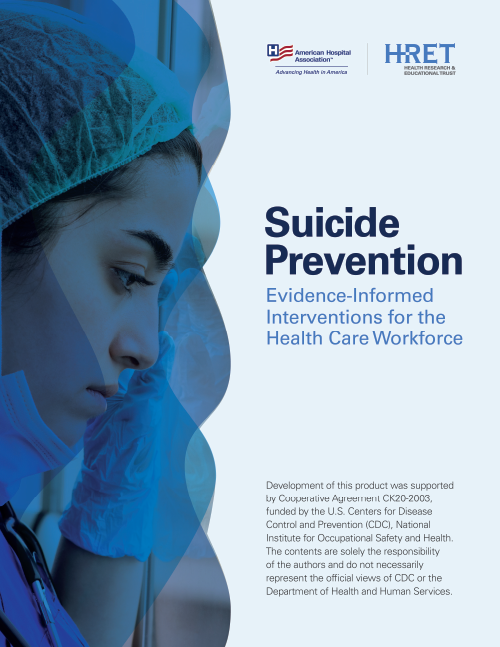
Indiana University Health (IU Health) is the largest health care system in Indiana. They employ over 38,000 individuals across 18 medical centers and hospitals throughout the state. For their work with the AHA Suicide Prevention in the Health Care Workforce Collaborative they chose to focus on addressing job-related stressors through peer-to-peer support programs.
IU Health decided to re-design their peer-to-peer support program as well as expand its offerings as part of their work with the collaborative. They initially attempted this program during the height of the COVID-19 pandemic, but it became lost in the shuffle due to the public health emergency’s challenges. In their initial launch, IU Health released a Psychological First Aid toolkit for leaders as well as a training for leaders to attend. While most of their leaders did attend this initial training, unfortunately, IU Health did not collect data on the programming and thus lost track of who had attended. IU Health also launched a team member peer-to-peer support program. Because they did not link these programs together or keep track of data the programs were found to be unsustainable – this was also impacted by changing organizational priorities in the wake of the COVID-19 pandemic.
Joining the collaborative at the start of 2023 provided IU Health the opportunity to put new eyes on the project. Their focus was sustainability of the program. Initially, they identified one hospital within their system that was in need of support. They have since added a second hospital to the pilot. Leaders within their hospitals are to identify members of their team/unit who they believe would succeed as a peer supporter. These individuals will complete peer-to-peer training that includes pre- and post-tests, virtual role playing, in-person sessions and self-study. The team at IU Health will collect the data and feedback from this pilot to determine any improvements that could be made before implementing it across the entire system. This training will, eventually, be required across their system. At this point they have received positive feedback from individuals who have already completed this training. Members of the team at IU Health note that in their role-play sessions they can see how intentional the trainees are in applying the concepts they have learned.
In addition to peer-to-peer support training, IU Health has developed an emergency app for mobile devices. Those who have completed the peer training, as well as those who have been supported, have access to the information on this app. IU Health ran into some technical difficulties with this app, causing some delay in its launch, but have since fixed the problems and are ready to launch the app to the supporters in the next steps of the program. The hope is for this app to help with sustainability of the program.


